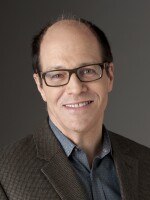Craig Dunaway, president of the Midwestern sandwich chain Penn Station East Coast Subs, isn't sure what Congress will do about the Bush-era tax cuts that are set to expire at the end of the year.
But he knows what he's not going to do -- hire anyone.
Dunaway not only heads the chain of 220 restaurants. He also is the franchisee of 14 stores, and the uncertainty over how high taxes will be next year has left him hanging about whether he can afford to hire or invest.
"Right now, I will not grow because of the uncertainty," Dunaway says. "Personally, I will not open any more restaurants until I understand the ramifications of either increasing tax rates or keeping them the same, or what the ramifications will be to my business as a small-business owner on health care."
A Divide Over Taxes
At issue is the broad range of cuts in estate, income and capital-gains taxes enacted during the George W. Bush administration that are scheduled to expire at the end of the year. While President Obama and most Democrats favor letting the cuts lapse for the richest Americans, Republicans want to extend them for everyone.
Although polls suggest that the Democratic position is more popular, that's not the case in some suburban swing districts. Vulnerable Democrats have pressed to delay a vote until the election. That means Congress would have to take up the issue during its brief lame duck session.
House Speaker Nancy Pelosi said on Friday that the cuts would be extended.
"There isn't a person in our caucus that isn't for tax cuts for the middle class and it isn't about the election," Pelosi said. "It's about the policy, and we're all very strong on that."
Prolonging The Uncertainty
But many business owners complain that the delay comes at a time when many states are in deep financial distress and are contemplating tax holes of their own. All that only prolongs the uncertainty about their bottom line, leaving them unsure whether to invest or hire.
"And those are the types of decisions that I think drive people to say, 'Well, I'll just wait it out. I don't have to do it right now, because not a lot of things are happening in the economy and I can just sort of defer by not making the decision,'" says Barry Melancon, president and CEO of the American Institute of Certified Public Accountants.
At a time when the economy is limping out of a recession and the national unemployment rate is 9.6 percent, the added uncertainty won't help matters much, says Nigel Gault, chief U.S. economist for IHS Global Insight.
"That is not something that is going to, on its own, take the economy into a double dip, but it's going to help make sure that the economy goes very, very slowly over the next few months," Gault says.
Copyright 2022 NPR. To see more, visit https://www.npr.org. 9(MDAzMjM2NDYzMDEyMzc1Njk5NjAxNzY3OQ001))






